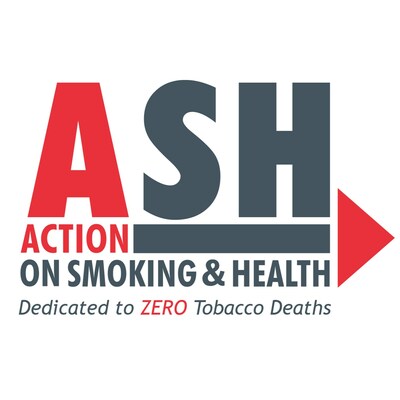SACRAMENTO, Calif., April 30, 2024 /PRNewswire/ — The Fourth Intergovernmental Negotiating Committee (INC-4) to develop an international legally binding treaty on ending plastic pollution, adjourned April 29, 2024, in Ottawa, Canada after a week of slow but meaningful progress. ASH and its Stop Tobacco Pollution Alliance (STPA) allies were pleased with the support of government delegations for a ban on cigarette filters, the largest source of global plastic pollution.
Negotiators seek to regulate plastic products according to their utility and environmental harm, with nonessential, polluting plastics slated for complete bans. Cigarette filters are a prime example.
At the INC-4 negotiations, several countries proposed banning cigarette filters, including Peru, Panama, and Switzerland. The World Health Organization also made a joint statement with the Secretariat of the Framework Convention on Tobacco Control (FCTC) to call for a cigarette filter and other single use tobacco plastic product waste ban. Their joint statement called on the INC to acknowledge a WHO FCTC COP10 Decision on the environmental impact of tobacco.
The list of plastics to be banned will be finalized at INC-5 starting November 25, 2024, in Busan, Republic of Korea, but given the criteria established it seems clear that cigarette filters belong at the top of the list.
Cigarette filters do nothing to lessen the harms of smoking and may make things worse. Roughly 4.5 trillion used filters, or cigarette butts, are tossed into the environment each year. Filters are made of cellulose acetate that breaks down into microplastics, and leaches toxins and carcinogens into terrestrial and aquatic environments. They are also attached to cigarettes, the world’s leading cause of preventable death.
“It’s essential to remember that we don’t need industry permission to build a healthy environment, free from trillions of cigarette butts and other harmful plastics. We must demand our right to a healthy environment, and governments have a duty, both ethical and legal, to provide it,” said Laurent Huber, Executive Director at Action on Smoking and Health. “The right to a healthy environment has been recognized by the UN General Assembly. Banning cigarette filters is a step in the right direction to protecting those and many other essential human rights.”
The Office of the High Commissioner on Human Rights made a statement at INC-1 and again at INC-4, calling to center the Plastics Treaty in human rights.
Recycling cigarette filters is not a viable solution. Even if a substantial fraction of cigarette butts could be collected – a near impossibility – there is no process for removing the toxins, recycling the plastic or turning the recycled plastic into other products.
Representatives from several of California’s environmental agencies attended INC-4, in particular the All Hands on Deck session convened by Ocean Conservancy and The Nature Conservancy California which featured Congressman Jared Huffman (CA-02) as a speaker. Several cities in California also supported the launch of the local and subregional coalition that launched on Earth Day.
Over 98% of cigarettes include filters. Filter-less cigarettes would greatly reduce youth uptake, encourage adults to quit, and remove the leading source of plastic pollution.
ACTION ON SMOKING AND HEALTH
Founded in 1967, Action on Smoking and Health (ASH) is America’s oldest anti-tobacco organization, dedicated to a world with ZERO tobacco deaths. Because tobacco is the leading cause of preventable death worldwide, ASH supports bold solutions proportionate to the magnitude of the problem. ash.org
Media Contact:
Megan Manning
(202) 390 – 9513
![]() View original content to download multimedia:https://www.prnewswire.com/news-releases/un-plastics-treaty-negotiations-move-forward-with-strong-support-for-banning-cigarette-filters-302132250.html
View original content to download multimedia:https://www.prnewswire.com/news-releases/un-plastics-treaty-negotiations-move-forward-with-strong-support-for-banning-cigarette-filters-302132250.html
SOURCE ACTION ON SMOKING AND HEALTH



